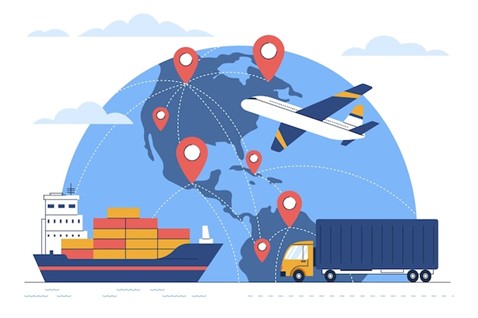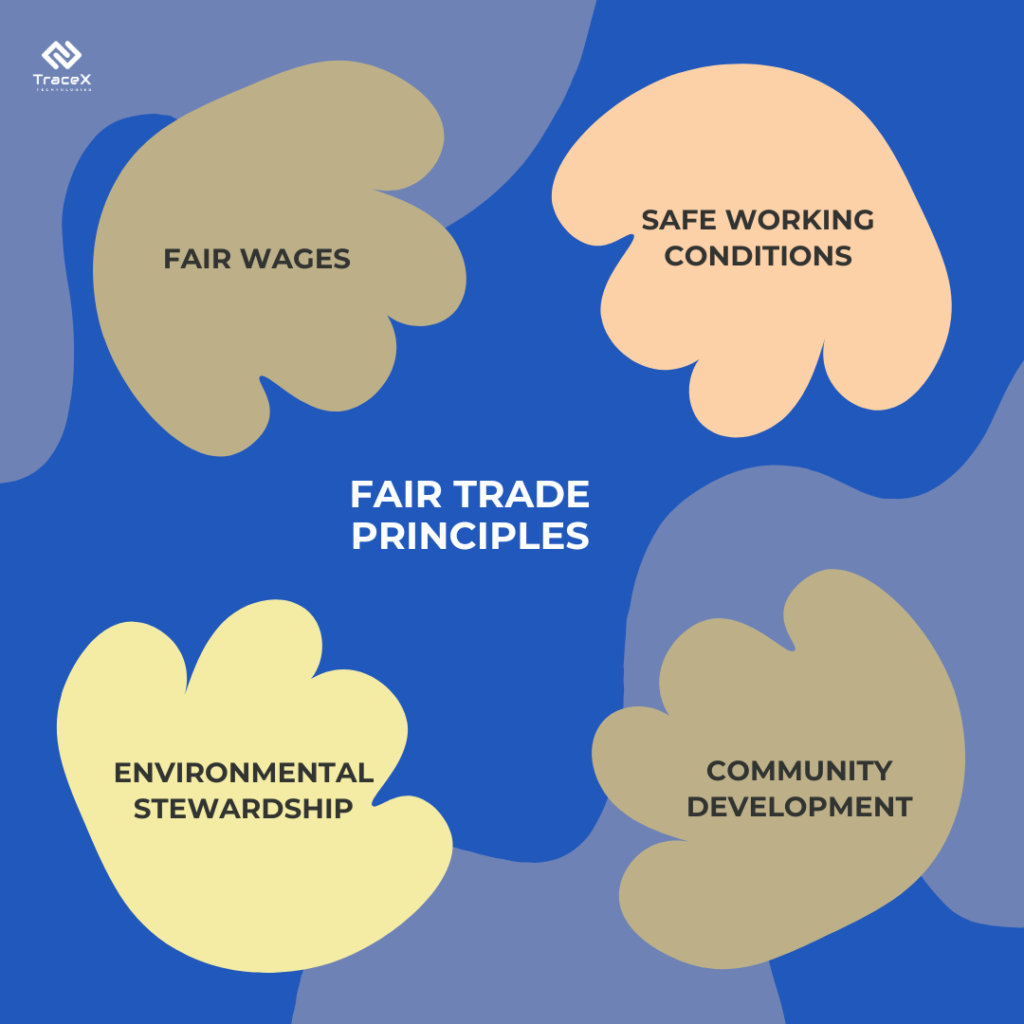Contact: +91 99725 24322 |
Menu
Menu
Quick summary: Explore the workings of Fair Trade Certification in our comprehensive guide. Learn how ethical principles and sustainable practices are upheld, empowering producers and benefiting consumers. Dive into the world of fair trade and make informed choices for a better future.

Fair Trade Certification is a ray of hope in the world of international trade. With its guarantee that goods are produced, harvested, and processed in a way that respects both people and the environment. In an increasingly interconnected world where goods traverse continents at unprecedented rates, the concept of fair and ethical trade stands as a ray of hope amidst the complexities of global commerce. It serves as a mechanism to promote equitable and sustainable trade practices, mitigating the negative impacts of exploitative labor, unfair wages, and environmental degradation.
Fair Trade Certification refers to a system of standards and regulations established to guarantee that products are produced in a socially responsible, economically equitable, and environmentally sustainable manner. It encompasses a wide array of criteria designed to safeguard the rights and well-being of workers and farmers, promote fair wages and safe working conditions, and foster ecological stewardship throughout the supply chain.
In a world characterized by globalization and interconnectedness, Fair Trade Certification assumes paramount significance in ensuring that trade practices align with ethical and sustainable principles. By championing fair wages, empowering marginalized communities, and mitigating environmental degradation, Fair Trade Certification contributes to the creation of a more just and resilient global economy.

Fair Trade Certification serves as a mechanism for empowering producers and workers, particularly in developing countries, by ensuring that trade practices are fair, transparent, and beneficial to all stakeholders involved. It seeks to rectify imbalances in global trade by promoting equity, justice, and sustainability.
Fair Trade Certification involves adherence to specific criteria and standards aimed at promoting ethical and sustainable practices throughout the supply chain.
Know how businesses can enhance transparency, accountability, and sustainability by implementing robust traceability measures and adopting ethical practices throughout their supply chains.
Explore the importance of supply chain traceability and ethical practices
Certification bodies play a pivotal role in overseeing and regulating the Fair Trade Certification process. They are tasked with auditing producers, verifying compliance with Fair Trade standards, and ultimately issuing Fair Trade Certificates to qualifying entities.
Producers seeking Fair Trade Certification must meet certain eligibility criteria, including the provision of fair wages, adherence to labor regulations, and implementation of sustainable practices.
The journey towards Fair Trade Certification begins with the submission of an application by the producer. This application undergoes rigorous evaluation, encompassing assessments of labor practices, environmental impact, and community engagement.
Certification bodies conduct audits and inspections to assess the compliance of producers with Fair Trade standards. These evaluations entail on-site visits, document reviews, and interviews with workers, ensuring adherence to prescribed criteria.
Upon successful completion of audits and inspections, producers meeting the requisite standards are granted Fair Trade Certification. This certification serves as a testament to their commitment to ethical and sustainable trade practices.
Fair Trade Certification mandates the provision of fair wages, safe working conditions, and respect for the rights of workers and farmers. It seeks to combat exploitation and promote dignity and equality in the workplace.
Fair Trade Certification ensures that producers receive remuneration commensurate with the true value of their labor and resources. It seeks to rectify imbalances in global trade by fostering transparency and equity in pricing mechanisms.
Fair Trade Certification advocates for sustainable agricultural and production practices that minimize harm to the environment. It emphasizes conservation, biodiversity, and the prudent use of natural resources.
Producers holding Fair Trade Certification are expected to reinvest in their communities, supporting initiatives aimed at fostering development, empowerment, and social cohesion.
Fair Trade Certification provides producers and workers with access to stable incomes, improved livelihoods, and enhanced market opportunities. It serves as a catalyst for poverty alleviation and economic empowerment.
Fair Trade Certification supports community-led development initiatives, such as education, healthcare, and infrastructure projects. It empowers marginalized groups, particularly women and indigenous communities, enabling them to assert their rights and participate in decision-making processes.
Fair Trade Certification promotes environmentally sustainable farming methods, such as organic agriculture, agroforestry, and water conservation practices. It mitigates the adverse impacts of industrial agriculture, including deforestation, soil degradation, and water pollution.
Fair Trade Certification enhances market access for producers, enabling them to reach conscientious consumers who prioritize ethical and sustainable products. It allows producers to command premium prices for their goods, thereby enhancing their economic viability and resilience.
The process of obtaining Fair Trade Certification can be arduous, time-consuming, and costly, particularly for small-scale producers with limited resources. It may involve bureaucratic hurdles, language barriers, and technical requirements that pose challenges to eligibility.
Despite growing awareness of ethical consumerism, the market demand for Fair Trade products remains relatively niche. Many consumers are either unaware of Fair Trade Certification or prioritize other factors, such as price or convenience, when making purchasing decisions.
Ensuring compliance with Fair Trade standards across diverse contexts poses significant challenges. Discrepancies in monitoring, enforcement, and accountability mechanisms may undermine the integrity and effectiveness of Fair Trade Certification.
Continuous improvement and transparency are imperative for addressing criticisms and enhancing the credibility of Fair Trade Certification. Stakeholder engagement, dialogue, and collaboration can foster a culture of accountability, innovation, and shared responsibility.
Technology solutions play a crucial role in helping companies achieve Fair Trade certification by facilitating transparency, efficiency, and accountability throughout the supply chain.
Supply Chain Traceability- Advanced technologies such as blockchain, RFID (Radio Frequency Identification), and GPS (Global Positioning System) enable companies to trace the journey of products from farm to consumer. By implementing traceability systems, companies can ensure that Fair Trade products meet the required standards and that producers receive fair compensation.
Data Management and Analytics – Technology solutions enable companies to collect, manage, and analyze vast amounts of data related to supply chain operations, including production, labor conditions, and environmental impact. By leveraging data analytics, companies can identify areas for improvement and ensure compliance with Fair Trade criteria.
Digital Platforms for Collaboration- Digital platforms and collaboration tools facilitate communication and collaboration among stakeholders across the supply chain, including producers, suppliers, manufacturers, and retailers. These platforms enable transparent communication, decision-making, and information sharing, fostering trust and cooperation.
Mobile Applications for Field Data Collection- Mobile applications allow field workers and farmers to collect data on labor conditions, production practices, and environmental impact directly from the field. Real-time data collection enhances transparency and accountability, ensuring that Fair Trade standards are met at every stage of the supply chain.
Certification Management Systems- Technology solutions provide companies with certification management systems that streamline the process of obtaining and maintaining Fair Trade certification. These systems automate certification workflows, document management, and audit processes, reducing administrative burden and ensuring compliance with certification requirements.
TraceX blockchain traceability solutions empower companies to navigate the complexities of fair-trade certifications with ease and confidence. By providing transparent and immutable records of every stage of the supply chain, it ensures compliance with fair trade criteria, such as fair wages, safe working conditions, and environmental sustainability. Through accurate data tracking and verification, the solution enables companies to demonstrate their commitment to ethical sourcing and responsible business practices, paving the way for fair trade certification and fostering trust among consumers and stakeholders alike. With these solutions, companies can enhance their reputation, expand market opportunities, and contribute to positive social and environmental impacts within their supply chains.
By adhering to rigorous standards and criteria, certified organizations uphold principles of social responsibility, environmental stewardship, and economic equity. Through fair trade, producers in developing countries receive fair compensation for their labor, communities thrive, and the environment is safeguarded. As consumers increasingly prioritize ethical consumption, Fair Trade Certification offers assurance that the products they purchase align with their values. By supporting fair trade initiatives, individuals and businesses alike contribute to a more equitable and sustainable world.
